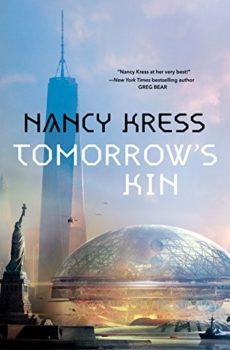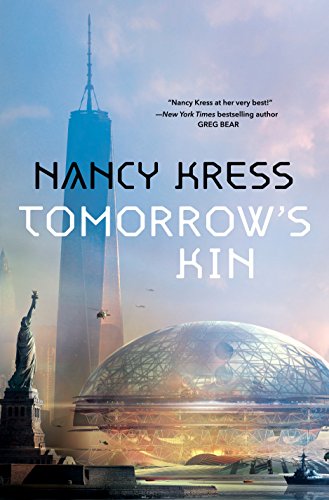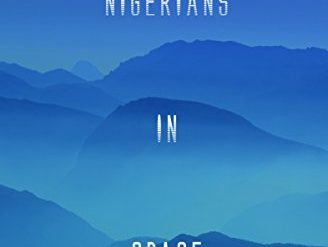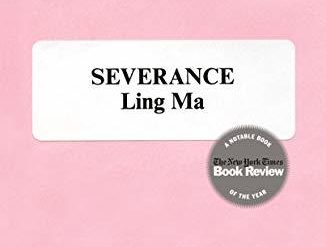
In most first contact stories, human meets alien, and then something happens. Whether the aliens are evil or benign, the tale centers on whatever happens in their interaction. That’s not the case in Tomorrow’s Kin, the first volume in Nancy Kress’s engrossing Yesterday’s Kin Trilogy. The contact between Terrans and Denebs in the novel is obviously key to the story. But this is hard sci-fi about evolutionary biology. Science is central to the tale. And the book focuses squarely on the psychology of the Terrans involved—and mostly on the relationships within a single family.
Estimated reading time: 4 minutes
Tomorrow’s Kin is genuinely hard science fiction. Evolutionary biology dominates, and Kress manages to make most of it intelligible to a lay audience. The story is set in the near future, when global warming has triggered increasingly severe climate change. Destructive superstorms wreak havoc throughout the United States with little warning. Seas are rising alarmingly. And the US government remains dominated by right-wing politicians with little or no understanding of science. But most of the characters in the novel pay little attention to the world around them.
Tomorrow’s Kin (Yesterday’s Kin Trilogy #1) by Nancy Kress (2017) 350 pages ★★★★★
Hard sci-fi about evolutionary biology
Dr. Marianne Jenner, the protagonist, is an evolutionary biologist. She has just written a groundbreaking paper in human genetics, reporting on the existence of a thirty-first human haplogroup. This is a fancy name for a genetic profile that identifies a group of people as direct descendants of a single parent. Yes, it’s quite technical, and Kress builds her case on a lot more of this sort of information. But it’s all eminently readable. And for anyone with even a rudimentary background in physical science, it’s reasonably easy to understand.
First contact is just the beginning
Marianne’s paper has somehow attracted the attention of a group of aliens from the direction of the star Deneb. They have landed in New York Harbor and entered into negotiations with the United Nations. Eventually, they request that Marianne join them in what is called the Embassy. (They refuse to show themselves.)
At the behest of the Denebs, Marianne and several dozen of the world’s top scientists in a wide range of fields enter the Embassy and set to work on an urgent project of mutual interest to both Terrans and Denebs. And Marianne’s research is at the heart of the project. Which leads her to play a central role in all that ensues as the project’s deadline passes.
A suspenseful story, very well told
A strange relationship slowly emerges between the Terrans and Denebs. But, throughout, we never lose sight of Marianne and her family. Each of them plays a significant role in the action that unfolds.
There’s no getting away from it. Tomorrow’s Kin is hard sci-fi, and it’s about evolutionary biology. But it’s also a grim story that is never predictable. Kress does a terrific job building suspense to the breaking point. This novel is an ideal point of entry for the two books that follow in the Yesterday’s Kin Trilogy.
About the author
Nancy Kress has won six Nebula Awards and two Hugos for her novellas, novelettes, and short stories, as well as other awards in the science fiction field. Kim Stanley Robinson has referred to her as “One of the best science fiction writers working today.” To date, she has written twenty-seven novels; the first of them was published in 1981. Kress has outlived three husbands. Most recently, she has been living in Seattle with her fourth. Although most of her stories are solidly grounded in known science, she has never gained a degree in any scientific discipline. Her work is based exclusively on intensive research.
For related reading
For more good reading, check out:
- These novels won both Hugo and Nebula Awards
- The ultimate guide to the all-time best science fiction novels
- 10 top science fiction novels
- The top 10 dystopian novels
- Ten new science fiction authors worth reading now
You might also check out Top 10 great popular novels.
And you can always find my most popular reviews, and the most recent ones, on the Home Page.


























